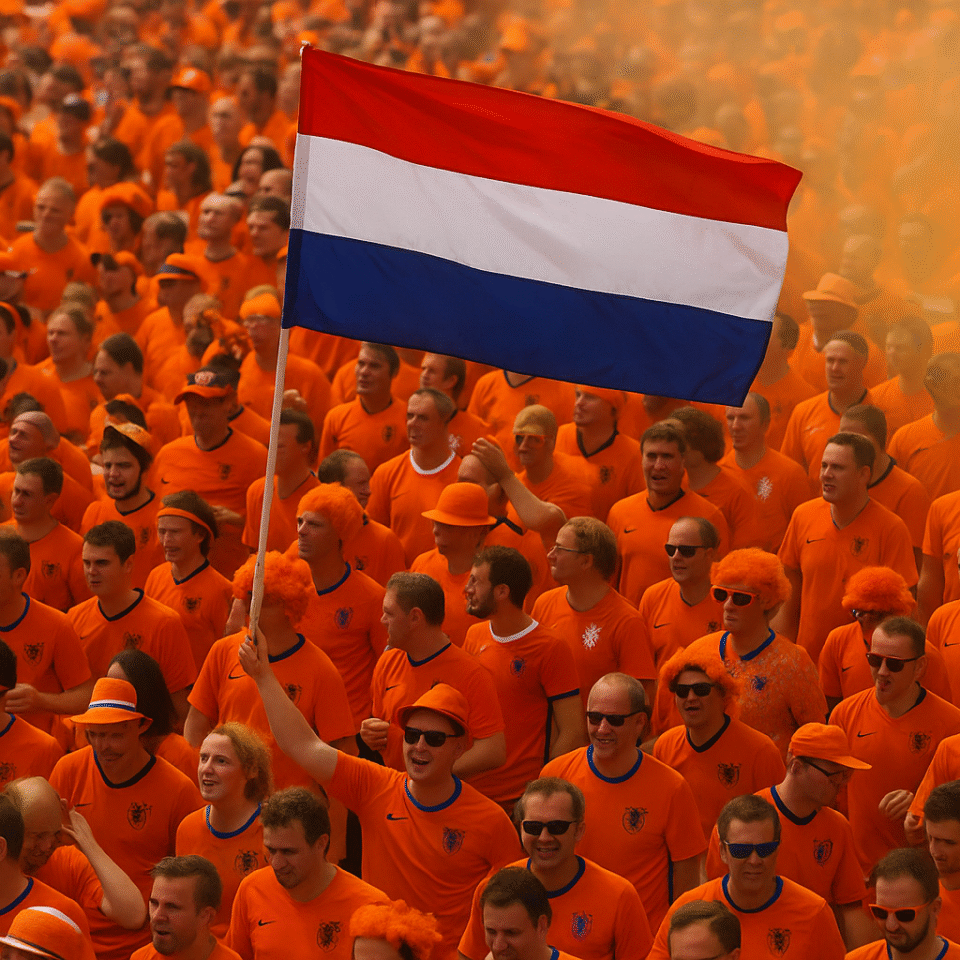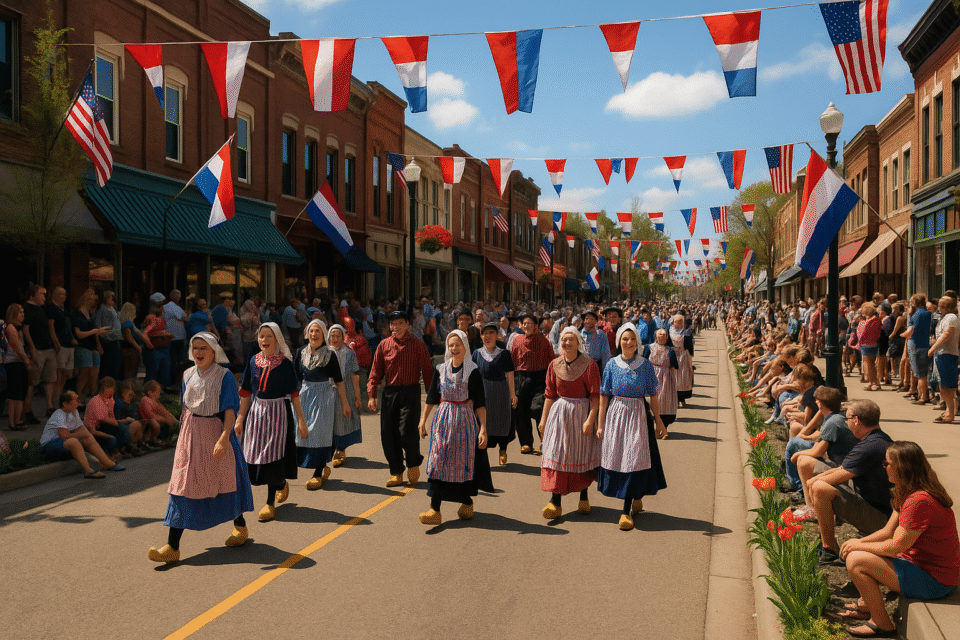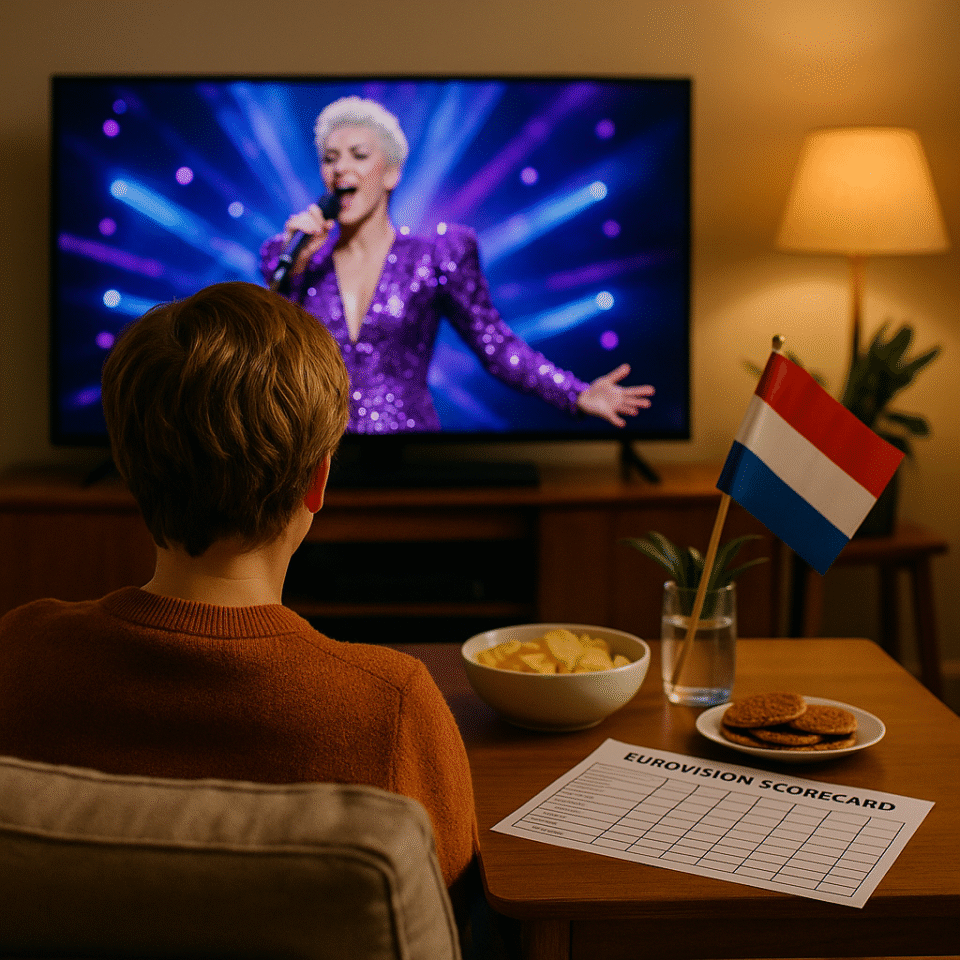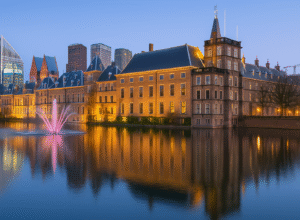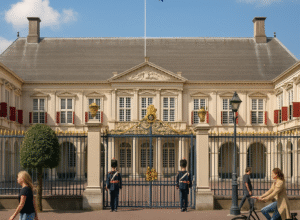What Americans Need to Know About Voetbal Before Making the Move
For many Americans considering life in the Netherlands, understanding Dutch football culture might seem secondary to practicalities like housing and healthcare. Yet few cultural touchpoints offer better insights into the Dutch psyche—or more natural opportunities for connection—than the national passion for the beautiful game.
So, you’re curious about or even considering a move to the Netherlands. You’ve researched the charming canals, the efficient bike paths, the world-class museums, the amazing healthcare, and perhaps even the intricacies of Dutch bureaucracy. But there’s one vital piece of the cultural puzzle you absolutely must understand before you arrive: football.
In the Netherlands, football (voetbal in Dutch) isn’t just a sport; it’s a religion, a national obsession, a source of immense pride, and sometimes, profound heartache. For future expats, particularly those from a country where ‘football’ means pigskin and touchdowns, getting a grasp on the Dutch passion for voetbal is key to integrating, connecting, and truly understanding the people around you. Forget tulips for a moment; let’s talk tackles.
A Kick-off: The Roots of Dutch Football
Like in many European nations, football arrived in the Netherlands thanks to the English in the late 19th century. The very first Dutch football club, Koninklijke HFC, was founded in Haarlem in 1879 by a gentleman named Pim Mulier, who is considered the father of Dutch sports. Initially, it was a game for the upper classes, played by gentlemen in sports clubs.
However, its accessibility, simple rules (compared to, say, cricket), and the sheer joy of kicking a ball quickly saw its popularity explode. Clubs began to sprout up in towns and cities across the country. The Dutch Football Association (KNVB) was founded in 1889, making it one of the oldest football associations in the world. For decades, football remained largely an amateur pursuit, deeply rooted in local communities and social clubs. This amateur spirit still exists and is vital to the sport’s reach.
The Rise of Oranje: Forging a National Identity
While club football grew steadily, it was the national team that truly captured the nation’s imagination and, crucially, helped forge a unified sense of national identity around the sport. Clad in the bright, distinctive color of the House of Orange-Nassau, Oranje (as the team is universally known) became a symbol of unity and collective ambition.
The watershed moment for Dutch football, and arguably for the Netherlands’ modern self-image, came in the 1970s. Led by the incomparable Johan Cruyff and coached by Rinus Michels, the Dutch national team introduced the world to “Total Football” (Totaalvoetbal). This revolutionary tactical system featured fluid positions, pressing opponents high up the pitch, and players constantly interchanging roles. It was dynamic, attacking, and breathtakingly beautiful to watch.
Though Oranje narrowly lost the 1974 World Cup final to West Germany (a defeat that still stings for older generations), their style of play won admirers globally and cemented their place as footballing innovators. This era wasn’t just about results; it was about an identity on the pitch – creative, technical, and fearless. The 1970s team is still revered, representing a golden age that continues to inspire.
Success did eventually come. The Netherlands lifted its only major international trophy in 1988, winning the UEFA European Championship with a team featuring legends like Ruud Gullit, Marco van Basten, and Frank Rijkaard. Van Basten’s impossible volley in the final remains one of football’s most iconic goals.
The national team’s journey since then has been a rollercoaster of exhilarating highs (reaching World Cup finals in 2010 and semi-finals in 1998 and 2014) and frustrating lows (failing to qualify for major tournaments). But regardless of performance, the support for Oranje is unwavering. During major tournaments, the country is draped in orange. Streets are decorated, people wear orange costumes, and public viewing parties draw massive crowds. It’s a nationwide festival where strangers become compatriots united by hope and national pride.
Total Football: More Than Just Tactics, a Dutch Philosophy
The concept of Total Voetbal isn’t just confined to dusty tactics boards. Some argue it reflects deeper aspects of the Dutch character: practicality, innovation, fluidity, and a certain egalitarianism where every player is expected to contribute to every phase of the game. Johan Cruyff, the system’s most famous exponent and later a hugely influential coach, became a national icon whose pronouncements on football (often delivered in cryptic, philosophical “Cruyffisms”) were treated with reverence. His legacy extends far beyond the pitch; he’s a symbol of Dutch creativity and a direct, sometimes blunt, pursuit of excellence.
Club Culture: Where Local Identity Thrives
While the national team unites the country, it’s club football that fuels daily passions and local identities. The Eredivisie (Honorary Division) is the top professional league, featuring historic clubs with fiercely loyal fan bases. The “Big Three” – Ajax (Amsterdam), Feyenoord (Rotterdam), and PSV Eindhoven – dominate the landscape, their rivalries deeply ingrained in regional identity.
Ajax: Amsterdam’s Pride
Based in the capital, Ajax is known for its attacking football and famous youth academy (producing legends like Cruyff, Van Basten, Bergkamp, Sneijder, Eriksen, De Jong, De Ligt) and international success (multiple European Cups). The club embodies Amsterdam’s confidence and cosmopolitan outlook.
Feyenoord: Rotterdam’s Heart
Based in the port city of Rotterdam, Feyenoord represents the working-class heartland. Known for passionate, sometimes raucous, support and a gritty, never-say-die attitude. Their rivalry with Ajax (known as “De Klassieker”) is arguably the most intense in the country, mirroring the historical rivalry between the country’s two largest cities.
PSV Eindhoven: Southern Power
Representing the industrial south, PSV Eindhoven (Philips electronics originated here) is known for a more stable, business-like approach and consistent success. Their measured approach often contrasts with the drama surrounding the Ajax-Feyenoord rivalry.
Beyond the Big Three, clubs like AZ Alkmaar, FC Utrecht, FC Twente, and others have dedicated followings and contribute to the rich tapestry of the league. Supporting your local club is often a birthright, passed down through generations. Matchdays are a significant event, with fans traveling across the country, filling stadiums with chants, banners, and an electric atmosphere. Attending a game, even for a neutral, is an experience in the raw energy and communal spirit that football generates.
Grassroots Glory: Football in Everyday Dutch Life
The importance of football in the Netherlands isn’t confined to professional stadiums. The country has an incredibly high participation rate in amateur football. On any given Saturday or Sunday, thousands of amateur teams, from adult leagues to kids’ clubs, are playing on pitches across the nation. These local clubs are vital community hubs, places where families spend their weekends, volunteers dedicate their time, and friendships are forged.
This widespread participation means football is omnipresent. Kids kick balls in parks and on street corners. Conversations at work, in cafes, or even at the supermarket checkout often revolve around the latest match, a controversial refereeing decision, or the form of a favorite player. It’s common ground, a shared language that transcends age, profession, and social background.
For the American expat, this is where understanding football becomes invaluable. You don’t need to become an expert or pick a favorite team immediately (though you will likely be asked!). But showing an interest, knowing about the recent Oranje result, or being able to comment on a big Eredivisie match is a simple, effective way to connect with Dutch people. It’s an instant icebreaker and a demonstration that you are engaging with their culture.
Furthermore, many expats find playing amateur football a fantastic way to meet people and stay active. There are numerous expat-friendly teams and leagues, offering a direct path into the social scene.
Football as Social Currency: Building Connections Through the Beautiful Game
Football provides a unique form of gezelligheid – that untranslatable Dutch concept of cozy, convivial togetherness. Watching a game in a pub packed with fans, singing along to team chants, and sharing the collective anxiety and elation of a match creates a powerful sense of belonging. It’s communal storytelling, with heroes, villains, and dramatic plot twists unfolding every week.
Of course, where there’s passion, there can also be tension. Rivalries, particularly between Ajax, Feyenoord, and PSV, can be intense, sometimes leading to unfortunate incidents, though the vast majority of fans are simply passionate supporters. Understanding these rivalries is also part of grasping the cultural landscape.
Why Should You Care? The American Expat’s Football Playbook
As you prepare for your move, you’re building a mental map of your new home. Include football on that map. It’s not just a sport on TV; it’s a living, breathing part of Dutch identity and daily life.
- It’s a Conversation Starter: Know enough to ask, “Did you see the Ajax game?” or comment on the national team’s performance.
- It’s a Way to Connect: Attend a match, watch one in a pub, or join an amateur team. It’s a direct path to meeting locals and other expats.
- It’s Cultural Insight: Understanding the passion, the rivalries, and the historical significance of Oranje gives you a deeper appreciation for Dutch society. The resilience after defeats, the collective joy of victory – these are glimpses into the national psyche.
- It’s Just Fun: Football, at its heart, is exciting and dramatic. Give it a chance!
Conclusion: Embrace the Orange Tide
From the muddy fields where it began to the global stage of the World Cup, football has kicked its way into the very soul of the Netherlands. It’s history, identity, community, and daily conversation all rolled into one.
For you, the American expat landing in this fascinating country, embracing the world of Dutch football isn’t mandatory, but it is highly recommended. It’s a vibrant, accessible way to peel back the layers of your new home, connect with its people, and perhaps even find yourself cheering along with the Orange Tide. So, brush up on your Cruyff facts, learn a few key team names, and get ready for a whole new dimension to Dutch life. Welcome to the club.
